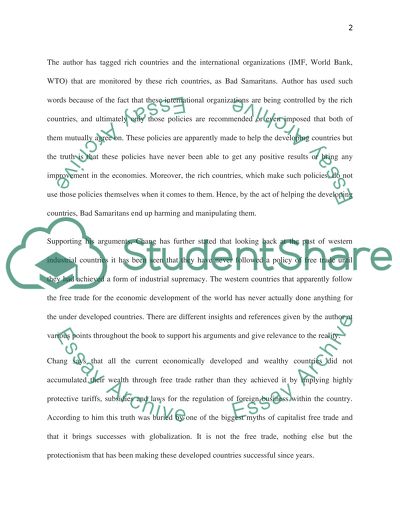Cite this document
(“Bad samaritan: The myth of tread and the secret history of capitalism Book Report/Review”, n.d.)
Retrieved from https://studentshare.org/family-consumer-science/1416584-bad-samaritan-the-myth-of-tread-and-the-secret
Retrieved from https://studentshare.org/family-consumer-science/1416584-bad-samaritan-the-myth-of-tread-and-the-secret
(Bad Samaritan: The Myth of Tread and the Secret History of Capitalism Book Report/Review)
https://studentshare.org/family-consumer-science/1416584-bad-samaritan-the-myth-of-tread-and-the-secret.
https://studentshare.org/family-consumer-science/1416584-bad-samaritan-the-myth-of-tread-and-the-secret.
“Bad Samaritan: The Myth of Tread and the Secret History of Capitalism Book Report/Review”, n.d. https://studentshare.org/family-consumer-science/1416584-bad-samaritan-the-myth-of-tread-and-the-secret.


